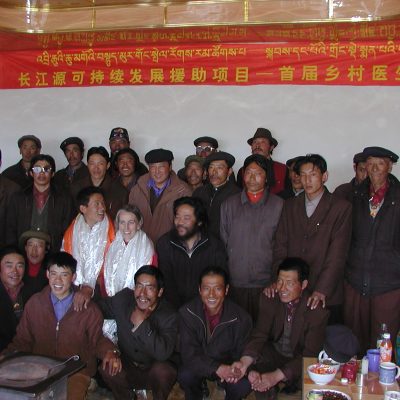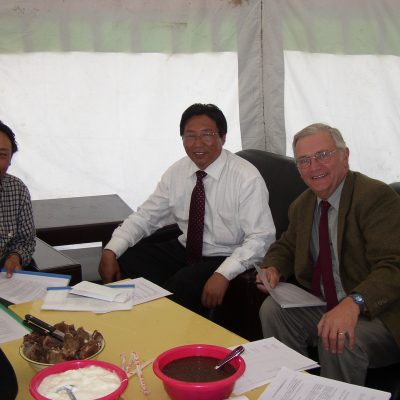Village Doctor Training
Health is a major problem in remote mountain regions, such as the Tibetan plateau. In particularly, mothers’ and children’s health was found to be especially poor – with around a quarter of children dying within their first year of life. Upgrading the professional abilities of village level health workers is the first line of defence.
Under its ‘Yangtze River Headwaters Sustainable Development Project’ (2003-2008), Plateau Perspectives worked closely with the Zhiduo Health Bureau and with the NGO Upper Yangtze Organization to improve health services in the region. Over the years, neighbouring counties also requested assistance. Altogether, Plateau Perspectives has trained more than 70 doctors in Zhiduo, Zaduo and Qumalai counties and over 25 women’s health workers in Zhiduo and Zaduo counties. The content of these courses was initially informed by the findings from a household health survey conducted in 2002 in a remote pastoralist region in Zhiduo county. With funding from the Social Sciences and Humanities Council of Canada (SSHRCC), the survey results were published in 2006 in the peer-reviewed journal Social Science and Medicine. Over subsequent years, Plateau Perspectives’ understanding of the socioeconomic, cultural and environmental situations affecting communities’ health status, especially maternal and child health, has been further enhanced – either confirmed or expanded – with focus group discussions, key informant interviews and participant observation over several years.
Following training, many local patients also were subsequently recognized/diagnosed by the village doctors with tuberculosis – and referred, and treated by the Centre for Disease Control (CDC). Working in collaboration with the CDC, some of the village doctors also were given training to assist in carrying out immunization programs.


